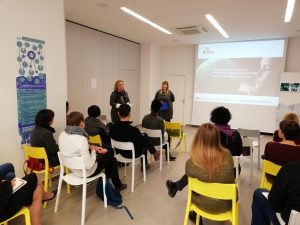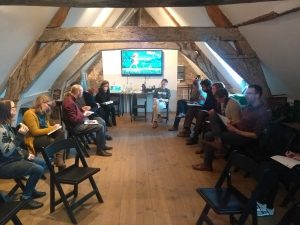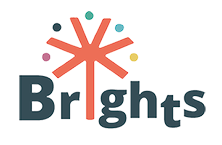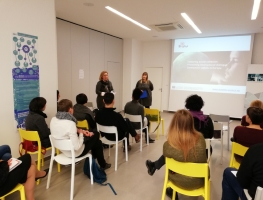The purpose of the BRIGHTS Project is to promote Global Citizenship Education (GCE) in formal and non-formal Educational contexts in Europe, with the help of digital storytelling (DS) techniques.
GCE employs concepts, methodologies and theories already implemented in different fields and subjects, including human rights education, peace education, education to achieve sustainable development and education for intercultural understanding. Addressing subjects through GCE can contribute to promoting social inclusion, democratic values and fundamental rights awareness by giving young people opportunities to challenge the injustice of racism, value cultural diversity and develop positive attitudes and behaviours towards people who are different from them.

Digital storytelling is a powerful and effective learning tool in stimulating creativity, digital literacy and critical thinking. The act of publishing one’s story, trying to influence peers to do the same and not to remain silent about the issues of radicalization and social exclusion will become an important factor in this process. Learners will be transformed to empowered actors who choose to put their stories out in order to raise awareness and help others.
In the context of the project, the BRIGHTS MOOC was launched on the 5thMarch in the four project countries (Belgium, Croatia, Greece and Italy) and it is currently underway. More than 1,000 teachers and trainers enrolled in the massive online course showing great interest in the topic.
Here are the numbers of users registered in each project country: 106 users in Belgium, 162 in Croatia, 758 in Greece and 115 in Italy. Successful participants will receive an open badge and a Certificate of Completion.
This result really proves that Global Citizenship Education (GCE) is of the highest concern to the public and specifically to secondary school teachers and trainers and that, therefore, the MOOC responds to crucial training needs that are emerging among young people, such as intercultural and cross-cultural skills, critical thinking, creativity and digital literacy.
The BRIGHTS partners are now ready to implement the next piloting activities.
The following step is the face-to-face workshop, during which 25 teachers and trainers from each project country and among those who have successfully completed the MOOC, will be trained on how to implement Global Citizenship Education with their pupils using digital storytelling.
Afterwards, all 100 teachers and trainers will implement the BRIGHTS methodology directly with young people at risk of marginalisation (13-19 years old). This will be the core project activity during which the students will be engaged in the production of digital stories on GCE topics. Through the production of digital stories, students will be empowered to combat radicalization and social exclusion and develop social, civic, and intercultural competences as well as critical thinking, media literacy, creativity and digital skills.
 In order to raise awareness on the GCE topics, the consortium will launch the BRIGHTS Awards for the best digital story as part of the ALL DIGITAL Awards. The BRIGHTS Awards will be launched through the GCE working group on the Unite-IT Platform. The winners for the best national story will have the opportunity to come to Brussels and take part in the ALL DIGITAL Summit in October. They will receive an award for the best national story and during the summit one story will be awarded as the best international one.
In order to raise awareness on the GCE topics, the consortium will launch the BRIGHTS Awards for the best digital story as part of the ALL DIGITAL Awards. The BRIGHTS Awards will be launched through the GCE working group on the Unite-IT Platform. The winners for the best national story will have the opportunity to come to Brussels and take part in the ALL DIGITAL Summit in October. They will receive an award for the best national story and during the summit one story will be awarded as the best international one.
The ALL DIGITAL Summit will also host the final event of the BRIGHTS “Boosting Global Citizenship Education using digital storytelling” project. By then, we expect a great number of interesting and reflective digital stories produced by youngsters on global challenges and subjects including human rights, peace and democratic values, intercultural dialogue and active citizenship.

